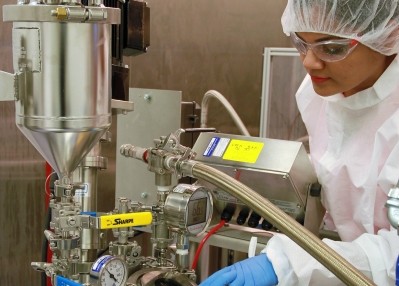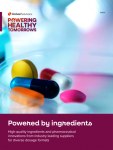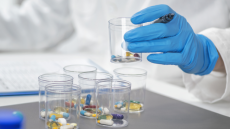Partnering key to deliver next-gen drug delivery tech, say industry experts

More than 50% of Boehringer-Ingelheim’s early-mid stage pipeline is anchored in collaboration with external partners, the company’s VP of material and analytical sciences, Keith Harspool, PhD, explained last month at DCAT Week in New York.
According to Harspool, Boehringer-Ingelheim’s relationships span from discovery and development collaborations to commercial partnerships and full-scale long-term alliances.
“These days, collaborating is basically an expectation,’ he said, adding that doing so is a core part of the company’s business.
“Many [products] aren’t going to work unless there is chemistry between the partners and the people,” Harspool added – and the chemistry needs to be as good as the chemistry in the reactions, he said.
And these partnerships are needed now more than ever, as pharma is dealing with more complex compounds that a decade ago Harspool said would not have been regarded as “drug like.”
“This is where this technology is going to be needed,” he explained.
As In-PharmaTechnologist previously reported, this demand for drug delivery technology is expected to catalyze the market in the US to $251bn by 2019.
Growth will be led my specialized dosage formulations as well as devices that are safer and easier to use. Of the market total, the demand for oral drug delivery products is expected to be more than $130bm by 2019 – though enhanced bioavailability and advances in monoclonal antibodies will support growth in parenteral drug delivery products.
“Poor solubility remains continually difficult,” Ronald L Smith, PhD, Scientific Associate VP Pharmaceutical sciences, Merck Research Laboratories, said during his presentation at DCAT Week, echoing that working with partners “opens up new opportunities.”
According to Smith true innovation in drug delivery is in how one enables, enhances and extends value.
“The cost, time, resources, and additional innovation required in order to successfully develop and scale and new drug delivery technology is almost always underestimated,” he added.
“From a pharma perspective, we are increasingly reliant on connecting and partnering … during delivery innovation,” said Smith. “To me, it’s almost essential.”
Click here to register for our free Drug Delivery Online Conference streaming tomorrow, April 20, 2017, in which we will discuss the key challenges and innovation in the delivery of small land large molecules drugs with experts from Recipharm and Juniper Pharma Services.


















